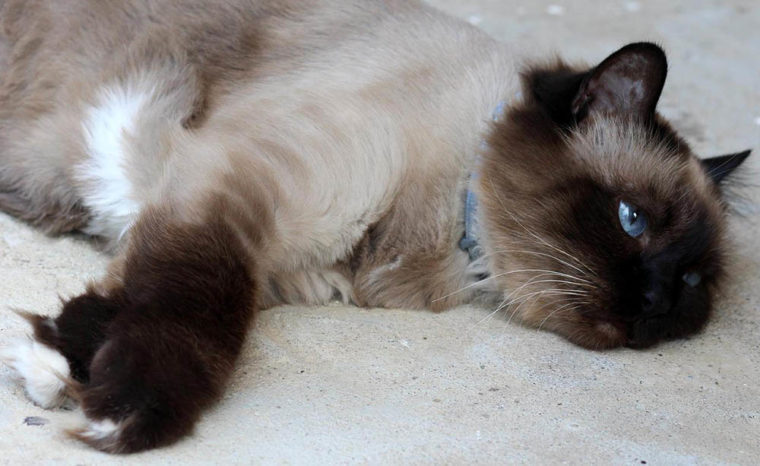
As cat owners, we want our cats to be healthy and safe. However, a cat owner must know what signs to watch out for that could suggest poor health. For instance, many cats, especially older ones, may develop diabetes mellitus. On average, it is estimated that about one in every 230 cats will get diabetes. Below we’ll show you seven signs that may indicate a cat has diabetes.
Type I vs. Type II
Like humans, cats can have two types of diabetes, Type I and Type II. Type I means the cat’s body doesn’t produce enough insulin. Type II means the cat’s body doesn’t properly respond to the insulin produced.. Cats more commonly have Type II diabetes than Type I.
The 7 Signs Your Cat May Have Diabetes
The idea of diabetes can be scary, but veterinarians can provide treatments and advice on managing clincial signs associated with the disease.
1. Frequent Urination
If your cat goes to the bathroom more often, it might be a sign of diabetes, which also causes increased thirst. If you notice your cat urinating and drinking more, take your pet to the veterinarian.

2. Lethargy or Weakness
Lethargy is another symptom of diabetes. A lively cat that suddenly becomes less active is a reason for concern. This applies to how your cat walks. For example, a cat walking flat on its hind legs (plantigrade stance) or tripping may be a sign that they have diabetes. If left untreated, it could lead to permanent paralysis of the hind legs.
3. Change in Appetite
A cat eating more than usual or less often can be a sign of diabetes. Several factors can affect your cat’s appetite, but you shouldn’t risk your cat’s health by assuming the condition will improve.
4. Rapid Weight Change
Rapid weight loss or gain is a common sign of diabetes in cats. The more overweight a cat is, the more symptomatic he or she may be.

5. Vomiting
Vomiting is an obvious sign your cat is sick, and it’s also a symptom sometimes seen with severe cases of diabetes. If your cat begins vomiting, get them to a vet as soon as possible.
6. Using The Bathroom Outside of the Litter Box
A cat using the bathroom outside of the litter box could mean the lethargy and weakness brought on by the diabetes is making it harder for them to get to the litter box.

7. Lack of Interest
If your cat usually enjoys playing and suddenly doesn’t care anymore, then you should talk to your vet. A sudden change in personality could be due to fatigue brought on by diabetes.
Treatment
The typical treatment for a cat with diabetes is once- or twice-daily insulin injections. You will also need to keep your pet on a strict, low-carbohydrate diet to keep them at a healthy weight and maintain glucose levels. These treatments are instrumental in reducing symptoms to keep your cat healthy and happy.
If you’re worried about your cat’s lifespan, you need not fret. A properly medicated diabetic cat may have a life expectancy of 13 to 17 years.
Final Thoughts
Diabetes is a serious condition, and if your cat exhibits these symptoms, you need to bring them to a vet. With proper treatment, your cat can live their life as comfortably as it did before and may even go into remission.
See also:
- Does Pet Insurance Cover Diabetes?
- Can Guinea Pigs Eat Potatoes? Vet-Approved Nutritional Facts & Info
Featured Image Credit: AdinaVoicu, Pixabay







